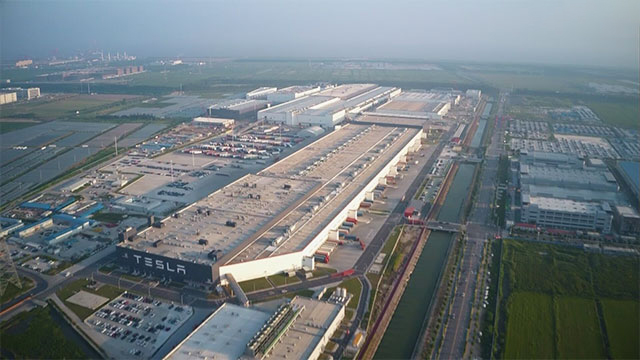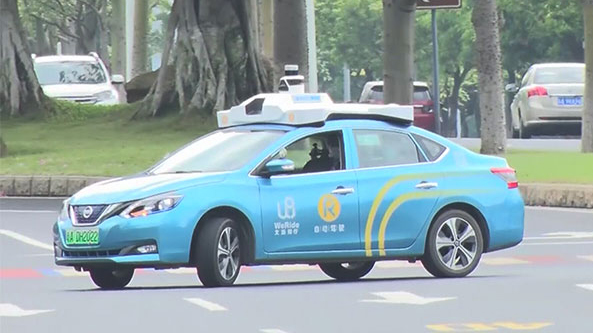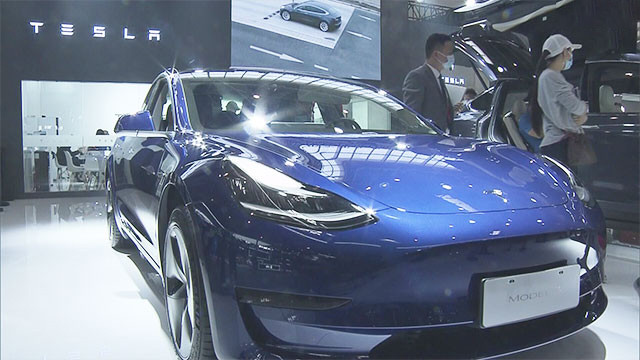Tesla began making electric cars in Shanghai last year at its first plant outside the United States. They are positioned as affordable luxury products, and are tariff-free in China. Prices start from about 250,000 yuan, or about 37,000 dollars. The move seems to be paying off, because demand is strong. The company enjoyed a 20-percent share of the e-car market in the first half of this year.
In 2018, Beijing scrapped a rule that meant foreign automakers could only make inroads into China through joint ventures with local partners. Tesla’s factory – the first to be completely foreign-owned in the country – became operational just 11 months after construction began in January last year. It’s believed this was possible thanks to strong backing from the local government.

Tesla’s timely entrance
China’s EV market has grown sharply. With government backing, sales have jumped 60-fold in the past six years. The number of manufacturers already tops 50.
Still, it hasn’t all been plain sailing – especially for the home-grown players. Beijing cut subsidies last year, and the impact of the coronavirus outbreak has pushed some start-ups into difficulties. Jin Tang, a senior research officer at Mizuho Bank and an expert on China’s auto market, says only three or four may be able to survive.
And so Tesla appears to be a ray of hope for the Chinese market. The government apparently hopes the firm can boost competition, and also nurture makers of parts including batteries and motors.
Smart cars the way forward
Chinese automakers are putting plenty of energy into developing smart cars, which are seen as a way to gain the market edge. One start-up, WM Motor, has teamed up with IT firm Baidu to develop a self-parking vehicle. Through an app, it can find, and then fill, a vacant space in a multistory parking lot. The developers say cameras and sensors help the car assess its surroundings, including pedestrians and obstacles. They plan to start selling it next year.
WeRide, a start-up in Guangzhou, launched an autonomous EV ride-hailing service last November. The firm’s 100-strong fleet in the city is said to have been used by almost 100,000 people. To improve safety, WeRide is using artificial intelligence to analyze 2.9 million-kilometers worth of travel data – the equivalent of driving around the globe 72 times.
Tests for self-driving cars are undertaken on public roads in major Chinese cities. In July, WeRide started fully autonomous trials for the first time in the country.

WeRide Chief Operating Officer Li Zhang says the key is to develop artificial intelligence that can control a vehicle by recognizing and responding to traffic conditions. Success, he adds, will be found in doing it before the competition.
Mizuho Bank researcher Jin says Chinese automakers are lagging behind their US rivals. But he also points out that China boasts the world’s largest auto market. Coupled with the country’s expertise in 5G technology, it may soon become a smart car powerhouse.


